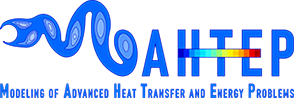News & Events
New Publication on International Journal of Hydrogen Energy
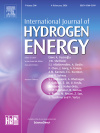 The paper "Hybrid superconducting energy pipelines: key cost thresholds and system implications for Italy", authored by Matilde Cais, Matteo Nicoli, Giovanni Mangiulli and Laura Savoldi has been published on International Journal of Hydrogen Energy.
The paper "Hybrid superconducting energy pipelines: key cost thresholds and system implications for Italy", authored by Matilde Cais, Matteo Nicoli, Giovanni Mangiulli and Laura Savoldi has been published on International Journal of Hydrogen Energy.
New publication on Energy
 The paper "A framework for global sensitivity analysis in long-term energy systems planning using optimal transport", authored by Matteo Nicoli, Daniele Mosso and Laura Savoldi has been published on Energy
The paper "A framework for global sensitivity analysis in long-term energy systems planning using optimal transport", authored by Matteo Nicoli, Daniele Mosso and Laura Savoldi has been published on Energy
Gianvito Colucci defended his PhD Thesis!
On September 19th 2025, our PhD student Gianvito Colucci defended his PhD thesis! The entire MAHTEP Group extends its heartfelt congratulations and wishes her every success in his future professional endeavors!

Matteo Nicoli and Daniele Mosso presented at the International Atomic Energy Agency in Vienna
On July 14th-18th 2025, Matteo Nicoli and Daniele Mosso have participated in the IAEA Technical Meeting on “Modelling the Contribution of Nuclear Power to Clean and Secure Transitions”, held in Vienna from July 14–18, 2025.
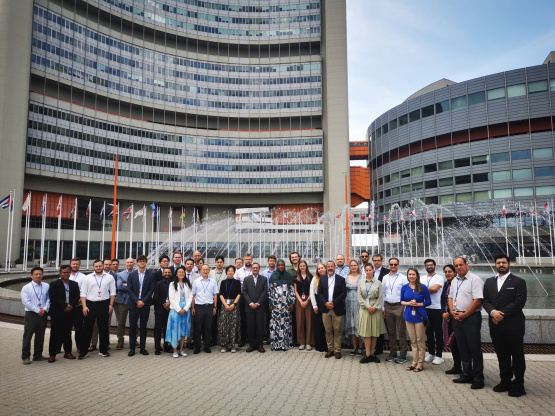
MAHTEP’s Marika D’Addazio Selected for MT29 Young Scientist Plenary on 20 T Hybrid Magnets
 The PhD candidate of the MAHTEP group Marika D'Addazio was selected to present at the Young Scientist Plenary session at the Conference of Magnet Technology 2025 (MT29) on the topic of "Towards 20 T Hybrid Magnets: Perspectives and Challenges".
The PhD candidate of the MAHTEP group Marika D'Addazio was selected to present at the Young Scientist Plenary session at the Conference of Magnet Technology 2025 (MT29) on the topic of "Towards 20 T Hybrid Magnets: Perspectives and Challenges".
The Young Scientist Plenary session is one of the most prestigious opportunities offered to younger scientists to present some inspiring ideas to the magnet community.
Farzaneh Amir Kavei defended her PhD Thesis!
On July 15th 2025, our PhD student Farzaneh Amir Kavei defended her PhD thesis! The entire MAHTEP Group extends its heartfelt congratulations and wishes her every success in her future professional endeavors!
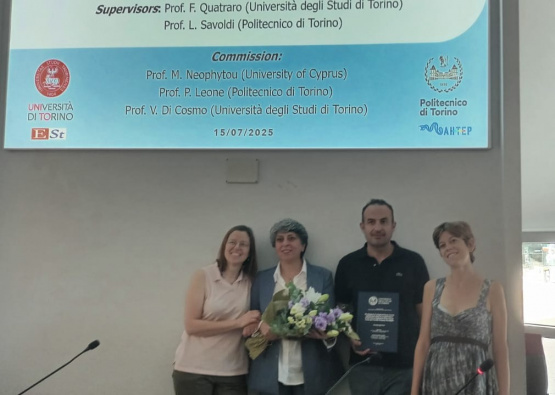
New publication on Energy Nexus
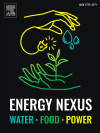 The paper "Integrated Water-Energy Modeling in TEMOA Energy System Optimization Model: Pantelleria Case Study",by Farzaneh Amir Kavei, Maria Elena Alfano, Matteo Nicoli, Francesco Quatraro and Laura Savoldi is now available on "Energy Nexus".
The paper "Integrated Water-Energy Modeling in TEMOA Energy System Optimization Model: Pantelleria Case Study",by Farzaneh Amir Kavei, Maria Elena Alfano, Matteo Nicoli, Francesco Quatraro and Laura Savoldi is now available on "Energy Nexus".
Roberto Diperna participated in the 40th Short Courses on Modelling and Computation of Multiphase Flows at ETH Zurich
Last week, our PhD student Roberto Diperna participated in the course “Modelling and Computation of Multiphase Flows” organized by Prof. Annalisa Manera at ETH Zurich.
New publication on Energy Conversion and Management
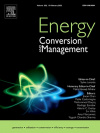 The paper "Enhancing energy transition with open-source regional energy system optimization models: TEMOA-Piedmont", by Farzaneh Amir Kavei, Matteo Nicoli, Francesco Quatraro and Laura Savoldi has been published in “Energy Conversion and Management”.
The paper "Enhancing energy transition with open-source regional energy system optimization models: TEMOA-Piedmont", by Farzaneh Amir Kavei, Matteo Nicoli, Francesco Quatraro and Laura Savoldi has been published in “Energy Conversion and Management”.
New publication on Materials Today Energy
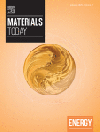 The paper “May the availability of critical raw materials affect the security of energy systems? An analysis for risk-aware energy planning with TEMOA-Italy”, by Alessio Vai, Gianvito Colucci, Matteo Nicoli, and Laura Savoldi has been published in “Materials Today Energy”.
The paper “May the availability of critical raw materials affect the security of energy systems? An analysis for risk-aware energy planning with TEMOA-Italy”, by Alessio Vai, Gianvito Colucci, Matteo Nicoli, and Laura Savoldi has been published in “Materials Today Energy”.

